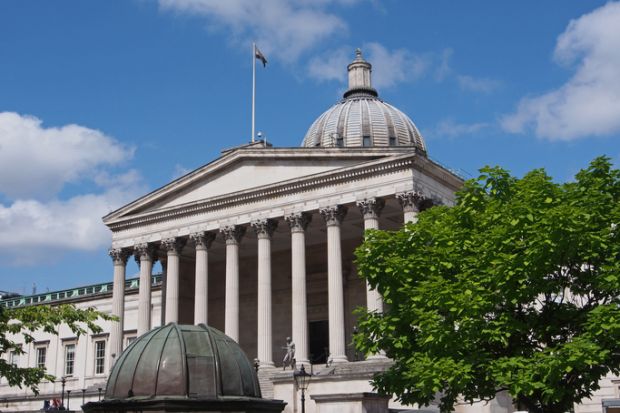Staff at one of the UK’s biggest universities will receive an average pay rise of 9.5 per cent as part of a more than £100 million investment in staff salaries.
UCL said it will give staff at the lower and middle points of its pay scales a larger incremental rise to top up the nationally set increase of between 5 and 8 per cent.
Other new benefits included an increase in London weighting to £5,000 by the end of the year for staff in grades 1 to 7, to provide a “significant and immediate flat rate rise to our middle and lower paid staff while also improving the gender, ethnicity and disability pay gaps”, UCL said.
It comes after the institution’s president, Michael Spence, admitted at a Times Higher Education event last year that UK universities have been “systematically underpaying” staff for “many years”, which was harming their competitiveness in attracting top global talent.
UCL said it will also pay visa costs for job applicants based outside the UK as part of a package of measures that will amount to a total investment of £110.2 million over the next four years.
“The overall median pay increase for UCL staff in 2023 will be 9.5 per cent including incremental progression and the national pay settlement,” an update said.
Staff who were at the top of their grade in August 2022 will move up an increment from December, and UCL said it was also introducing longer salary scales “which will allow for incremental increases over a longer time period”.
There were also plans to improve the promotion process for early career researchers and academics’ sabbatical entitlements.
Pay for higher education staff has been the subject of a long-running industrial dispute, culminating in the current University and College Union-organised marking and assessment boycott that has left thousands of students across the country unable to graduate as planned.
With negotiations stalled between the Universities and Colleges Employers Association (Ucea) and five sector trade unions, Queen’s University Belfast last month opted to give staff a 2 per cent extra rise to end the boycott locally and was kicked out of the employer body as a result.
UCL said that its pay offer was separate from the national negotiations and that it would continue to operate within national pay bargaining and pay any further uplifts, including the one due next month.
Alongside the UCU action, UCL has also faced protests by its security guards, who have been holding a 10-day long strike, organised by members of the Independent Workers Union of Great Britain (IWGB), over what it said was a proposed “fire and rehire” scheme that would see 40 guards depart and the rest given new contracts and reduced hours.
UCL said that it was seeking to avoid any compulsory redundancies among security staff – employed by subcontractor Bidvest Noonan – and that its new pay adjustments would be applied to all cleaning, catering, portering and security staff working for contractors, taking their salaries “substantially…above the London Living Wage”.
The local branch of the UCU said it was aware of the pay arrangements announced by UCL but claimed that it had not been properly consulted and had not agreed to the offer. “We note that, while welcome, it does not cover what our members are losing through inflation,” a spokesperson said.
Register to continue
Why register?
- Registration is free and only takes a moment
- Once registered, you can read 3 articles a month
- Sign up for our newsletter
Subscribe
Or subscribe for unlimited access to:
- Unlimited access to news, views, insights & reviews
- Digital editions
- Digital access to THE’s university and college rankings analysis
Already registered or a current subscriber? Login








